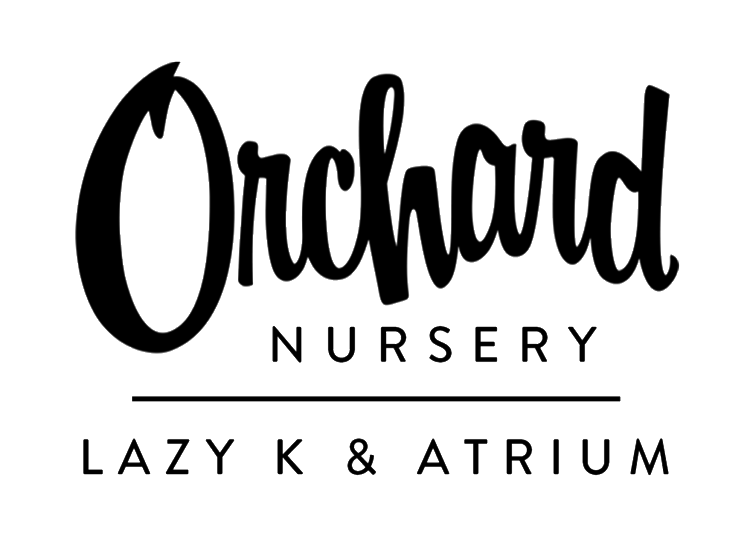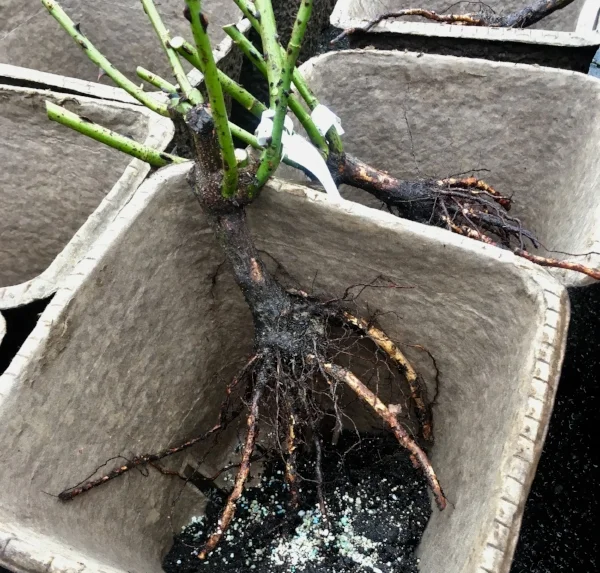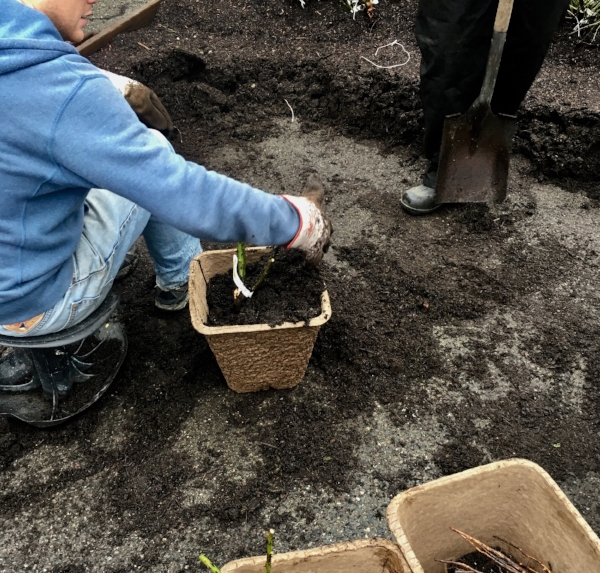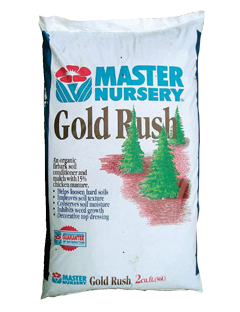And she was fair as is the rose in May.
- Geoffrey Chaucer
Plant a rose now and you’ll have flowers in May! Our bareroot roses, including David Austin varieties, have arrived, been potted up in pulp pots and are ready for purchase!
A shot of our bareroot roses, and below, our nursery staff potting them up for you!
QUESTION OF THE MONTH: How should I plant bareroot roses and fruit trees that are in pulp pots?
We plant our bareroot roses and fruit trees in biodegradable pulp pots so that they can be planted through the growing season, not just during bareroot season (January and February).
How to plant your bareroot rose or fruit trees depends on what time of year you’re planting. It’s important to take note of the root development, which denotes when to remove it from its pulp pot and plant, or to plant it in the pulp pot to keep those roots protected!
THE MONTH OF PLANTING:
JANUARY - FEBRUARY: Remove plant from pulp pot and plant directly into the soil.
Our pulp pots will typically degrade completely within about a year. When planted early, we recommend taking bareroot plants out of the pots and planting as you would any bareroot plant.
MARCH - MAY: Plant pulp pot and plant together.
Once fully leafed out, roses and fruit trees are growing fine roots, which are easily broken. At this point, we recommend planting the pot and all to avoid transplant stress. Before planting, slit the sides of the pulp pot vertically in four places to within an inch or two of the top rim. The bottom may also be removed. Plant so that the soil in the pot is the same depth as the soil outside the pot. The rim of the pot may be removed, or you can leave it in place as a watering basin for the first year.
JUNE - AUGUST: Tear away pulp pot and plant your plant directly in soil.
Later in the season roots have developed enough that they will hold a root ball together. For best results at this stage, remove the pot by tearing it carefully away from the root ball. Don’t try to pull the plant out of the pot, as this will break roots.
“INSURANCE” for Bareroot Plants
Bareroot plants have been described as “sticks with roots”. If you’ve never planted anything from bareroot stock before, you might doubt that these leafless plants will ever amount to anything. But like a spring miracle, bareroot roses and fruit trees will leaf out and bloom the very first season (although it may take fruit trees a few years to produce a substantial crop).
Because they don’t have an established root system, we recommend helping bareroot plants by using Rootmaster B-1, which is more than regular B-1. It contains a hormone, similar to that in Rootone, that actually stimulates new white root hairs in plants. When used in conjunction with starter fertilizer, we recommend E.B. Stone Organics Sure Start 4-6-2, it gives plants a wonderful start and helps insure the health of the plant as it establishes in the landscape. Apply once a week, according to directions, for the first 4 to 6 weeks for healthy roots and shoots!
For planting roses we recommend using Pay Dirt. Formulated with chicken manure, redwood sawdust, peat moss and mushroom compost making it perfect not only for your roses but your veggie garden and flower beds too! Paydirt works to help loosen hard soils, (for all of us with that compacted clay!) and improves both water and root penetration.
For your fruit trees, plant with Gold Rush. It’s a fir bark blend with 15% composted chicken manure. And it’s also on sale for the month of January (we’re talking January 2019!) Buy 3 bags of Gold Rush and receive 1 FREE! Gold Rush helps add important long-lasting organic matter to the soil, improves soil aeration and water penetration.
Questions? Stop in and talk with one of our nursery professionals today!






